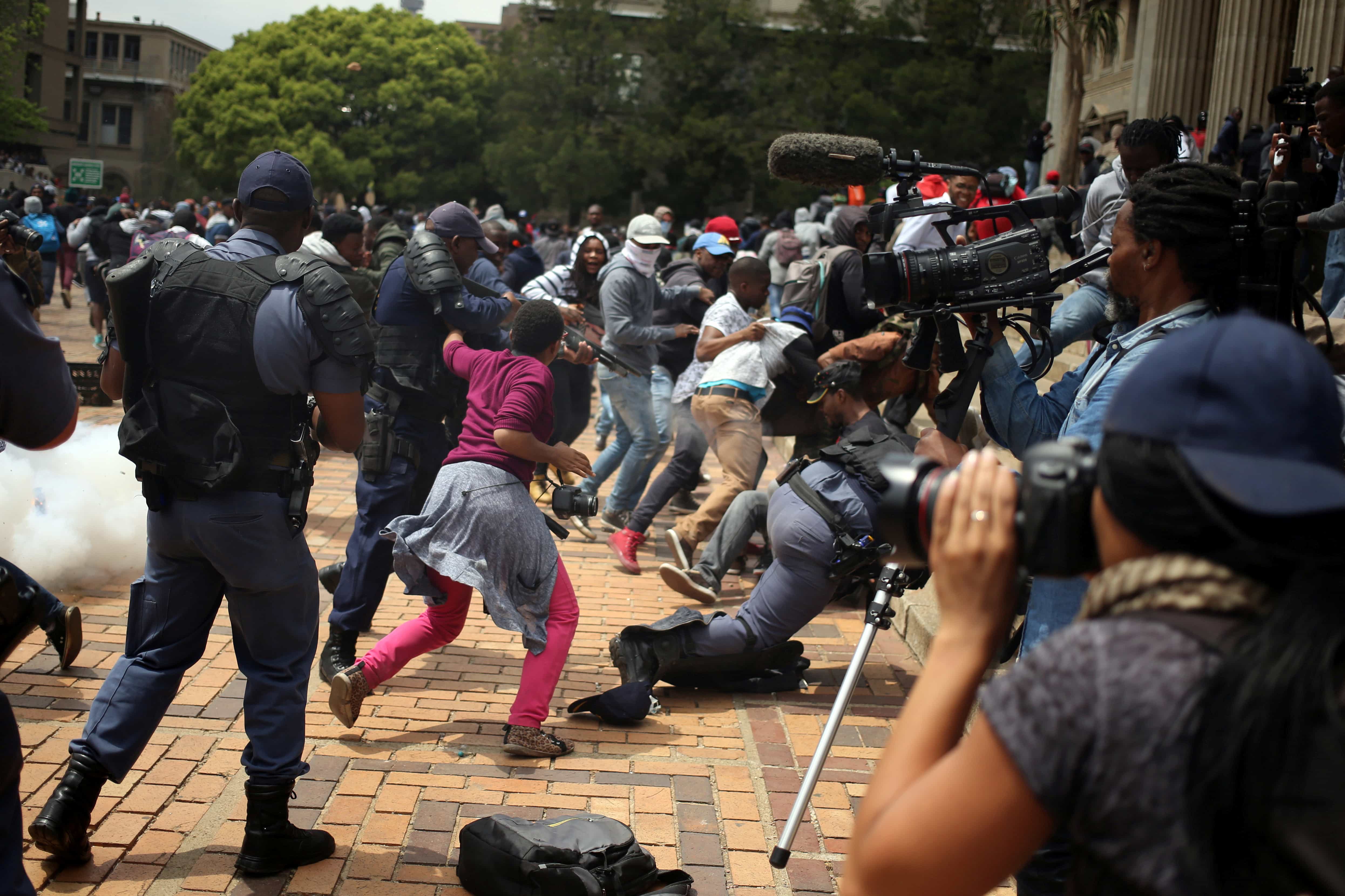SABC Journalist Jamaine Krige unveils the challenges of covering one of the most important post-apartheid movements to rock South Africa: #FeesMustFall.
Such was Jamaine Krige’s first impression of #FeesMustFall, a student movement calling for free and decolonised education.
Krige, a radio journalist for the South African Broadcasting Corporation (SABC) has been covering the movement since October 2015, when protests – that had been brewing for months on a smaller scale – erupted nationwide on university campuses.
The impetus was a proposed increase in tuition fees. Students had rejected a 10% to 12% increase by the management of universities, and refused to settle for a 6% increase cap proposed by the government, according to BBC News.
#FeesMustFall succeeded in having President Jacob Zuma rule out any increase in university fees in 2015, but not this year.
In September 2016, the minister of higher education Blade Nzimande suggested that universities set their own fee increases for 2017, at no more than 8%. While the government has agreed to cover the tuition increase for poor students in 2017, many students rejected that concession, and once again took to protesting on the campuses of University of the Witwatersrand (“Wits University”), the University of Cape Town, and the University of KwaZulu-Natal.
The cost of higher education is only a symptom of a larger issue that the protesters are addressing: a legacy of racial and socioeconomic inequality left behind by colonialism and the apartheid era, which was dismantled in 1994.
The Associated Press reports that the income of the average white household is six times that of a black household, according to 2011 census data.
The issue came very much to the forefront in March 2015, when a University of Cape Town student threw a bucket of excrement at a statue of Cecil Rhodes, a British colonizer who had donated land to the university, sparking a movement called “Rhodes Must Fall.”
The New York Times reports that while 80 percent of South Africans are black, less than a quarter of the University of Cape Town’s student body is black. Black faculty are also underrepresented; only 5% percent of faculty at the University of Cape Town identify as black.
The protests have prompted violence from the police – who have responded to the protests with stun grenades, rubber bullets and tear gas. Some students have thrown rocks and bottles at police, and there have been incidents of arson.
Caught in the middle are reporters like Krige, who strive to represent the points of view of all those affected by the protests.
“We’re faced with hostility from the police – who feel that we’re portraying them in a brutal manner. We’re faced with hostility from the students, who feel that we’re telling a one-sided story. And we’re also faced with hostility – maybe not hostility – but a certain resistance from the official institutions. Because they also don’t feel like the full story is being told. It’s a very, very difficult situation to be in,” Krige told me over the phone.
For a transcript of the podcast, click here.
Audio of protests courtesy of Jamaine Krige.
Music:
-Solitude Two (Duet) by Martijn de Boer (NiGiD) (c) copyright 2016 Licensed under a Creative Commons Attribution Noncommercial (3.0) license. dig.ccmixter.org/files/NiGiD/54463 Ft: Javolenus
creativecommons.org/licenses/by-nc-…a/3.0/legalcode
-Ceteski by NICOCO (c) 2007 Licensed under a Creative Commons Attribution Noncommercial (3.0) license. bit.ly/2fVUZaY
creativecommons.org/licenses/by-nc-…a/3.0/legalcode
Their aim was not violence, their aim was not destruction. Their aim was to disrupt. To disrupt every-day citizens to the point where they take notice of this cause. And where they take notice of the problems.
Caro Rolando is the IFEX Section Editor for Africa, Europe and Central Asia.



